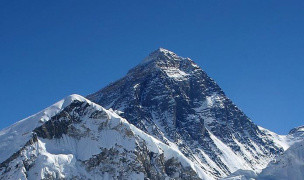 21 Terms
21 TermsHome > Industry/Domain > Astronomy > Planetary science
Planetary science
The scientific study of planets including Earth, moons, and planetary systems of the Solar System in particular and the processes that form them.
Industry: Astronomy
Add a new termContributors in Planetary science
Planetary science
sol
Astronomy; Planetary science
A local day on a planet, defined by its period of rotation. On Mars, for example, a local day lasts 24 hours and 37 minutes. During the Mars Pathfinder mission, scientists began counting Sols with ...
regmaglypt
Astronomy; Planetary science
Shallow depression, resembling a thumb print in clay, that is commonly seen on meteorites. Regmaglypts are formed by ablation from the surface by vortices of hot gas as a meteor falls through a ...
late heavy bombardment
Astronomy; Planetary science
Term referring to the idea that a sharp increase in impact bombardment rate between about 3. 92 and 3. 85 billion years ago affected the inner Solar System--most notably recorded in the numerous ...
potassium, rare-earth elements, phosphorus (KREEP)
Astronomy; Planetary science
A geochemical component in lunar rocks rich in potassium (K), rare-earth elements (REE), phosphorus (P), thorium, and other incompatible elements. These elements are not incorporated into common ...
astronomical twilight
Astronomy; Planetary science
The time when the Sun is 12-18 degrees below the horizon. When the Sun moves from 19 to 18 degrees below the horizon, astronomers can begin to detect an increase in the brightness of the sky, ...
lava
Astronomy; Planetary science
Fluid magma that flows onto the surface of a planet or moon; erupted from a volcano or fissure. Also, the rock formed by solidification of this material.
Featured blossaries
HalimRosyid
0
Terms
12
Blossaries
0
Followers
Famous Musicians Named John
 21 Terms
21 Terms
Bagar
0
Terms
64
Blossaries
6
Followers
The most dangerous mountains in the world
 8 Terms
8 Terms
